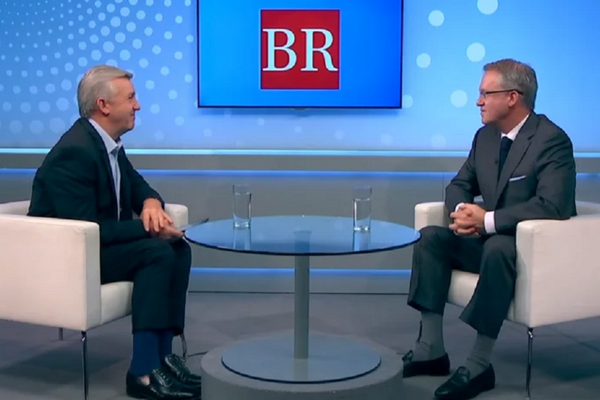Tech in 2019: the BIMA Think Tank predictions

by BIMA
Steven Spielberg once said that technology can be both “our best friend and the biggest party pooper”. So which will it be in the coming year? BIMA’s think tanks were established to aid industry leaders, offering insight and clarity in areas of the digital and tech sector often shrouded in mystery and clouded by clutter.
They are there to act as guides, teachers and “fuellers of the future”. So who better to turn their predictive power on 2019 than the chairs of our three think tanks: Immersive Tech, AI and Blockchain? Lawrence Weber, Immersive Tech From a corporate point of view, we predict the continuing maturation of the market, as commercial use-cases of virtual reality (VR) slowly gain traction.
There will be much less use of immersive tech – especially VR – just for the sake of it and more consideration of how it fits into either a marketing or operational strategy. The real growth will come from enterprise use-cases, especially those around training. It’s much safer to have a new employee learn to use expensive and potentially dangerous equipment in the virtual world than in the real one and, happily for business, it’s cheaper too. The new wave of portable and affordable hardware such as the Oculus Go or Magic Leap One make commercial use-cases more realistic too.
The consumer side of the market is facing a little bit of a make-or-break year, particularly for VR. The prevailing wisdom has been that mass adoption of VR has been held back because the hardware that will truly drive it hasn’t arrived. The low end of the market – Cardboard and Gear VR – is too limited to really excite, and the high-end such as the Oculus Rift is too expensive and cumbersome, requiring you to be tied to a high-end PC like a virtual prisoner. The Oculus Go will be cheap enough to make an impact on the mass market and good enough to give people a ‘proper’ VR experience.
If the general public still don’t get it after that, then it may be that having a potentially isolating headset on is something people just don’t like after all. Pete Trainor, AI 2018 was a big year for the AI industry. We saw media pump it to peak-hype, while AI companies which learned from the lessons of the past kept cool heads and ignored the overblown projections made some huge advances in deep learning and natural language processing. 2019 will continue those trends, and we predict three major gear-shifts in AI:
1. The year of open-source AI. Microsoft bought GitHub for a reason, and it’s because companies will begin to open up their internal AI projects and stacks. It massively increases innovation, enables faster time-to-market and lowers costs. It’s going to be a huge opportunity, and a huge hindrance, as non-data-science-driven businesses muscle in on the action.
2. We’ll see further acceptance that AI is about human and machine interaction, not full machine autonomy. Businesses will see AI as an extension of their workforces, contributing to the bottom line and widening reach. This human-in-the-loop mentality will move us further from the idea of general artificial intelligence, and to more realistic expectations from the technology.
3. 2019 will see deeper development of the AI assistant, showing us just how powerful and useful these tools could be. Our phones and homes will become increasingly intertwined with voice and predictive assistance. We’ll see the first car companies including AI assistants in their vehicles. We may also expect the arrival of our first in-ear assistant (like Samantha from the movie Her).
Apple’s second-generation AirPods might be the catalyst for an in-ear race with Google and Amazon.
David Lockie and Rob Belgrave, Blockchain 2018 has been a turbulent year for the Blockchain world, due to its intrinsic link with the valuation of the various cryptocurrencies built atop the technology. As prices have tumbled, many of the start-ups that raised significant funds during the hype of 2017 have found the reality of building a business more difficult than they expected.
Many have struggled to stay afloat, having managed their treasuries poorly during the decline in market valuation throughout the year, the similarities to the dotcom boom and bust of 2000 continue unabated. However, there are projects that have been quietly beavering away and making impressive progress despite the conditions, such as , which promises to disrupt payments in a number of contexts and already has some remarkable demonstrations being shared, including transfer of value within a VR environment.
More optimistically, many of the projects that raised money in 2017 via ICOs (initial coin offerings, similar to an IPO) will release platforms, products and protocols in 2019. That should lead to more successful case studies emerging from enterprise, and more case law and regulation that will underpin more confidence from institutions. Gartner’s hype-cycle model describes this phase as the “trough of disillusionment”, which is shortly followed by the “plateau of productivity”.
We remain confident that 2019 will be the year people come to realise that the future of value transfer and the future of money won’t look like the past. That won’t matter to the organisations and individuals who will use it successfully to disrupt and bypass incumbents who cling to the past, though, and although internet money will suffer the same challenges as internet anything – cyber-threats, fake news and censorship – it will also offer and in some cases supercharge similar advantages: disruption, new economic models and removing the barriers to entry that more traditional models are gated by.
Themes of 2019 If there are common threads running through the predictions this year, they are maturation, the potential to get beyond the headline hype, and traction. For consumer VR (as opposed to commercial VR, where momentum continues to build), customers will decide whether the improving tech and lower prices are sufficient compensation for the inconveniences of the headgear.
For AI, keeping humans in the loop in 2019 should lead to fewer “robots taking over the world” articles, and enable more realistic expectations of AI to gain traction. And as blockchain begins to deliver on its promise, we’ll start to see what the “new future of economics” really looks like. It’s going to be an exciting year.
To find out more about BIMA please visit our website.

Business Reporter Team
Most Viewed
23-29 Hendon Lane, London, N3 1RT
23-29 Hendon Lane, London, N3 1RT
020 8349 4363
© 2024, Lyonsdown Limited. Business Reporter® is a registered trademark of Lyonsdown Ltd. VAT registration number: 830519543
Join the Business Reporter community today and get access to all our newsletters, and our full library of talk show episodes
Join the Business Reporter community today and get access to all our newsletters, and our full library of talk show episodes




